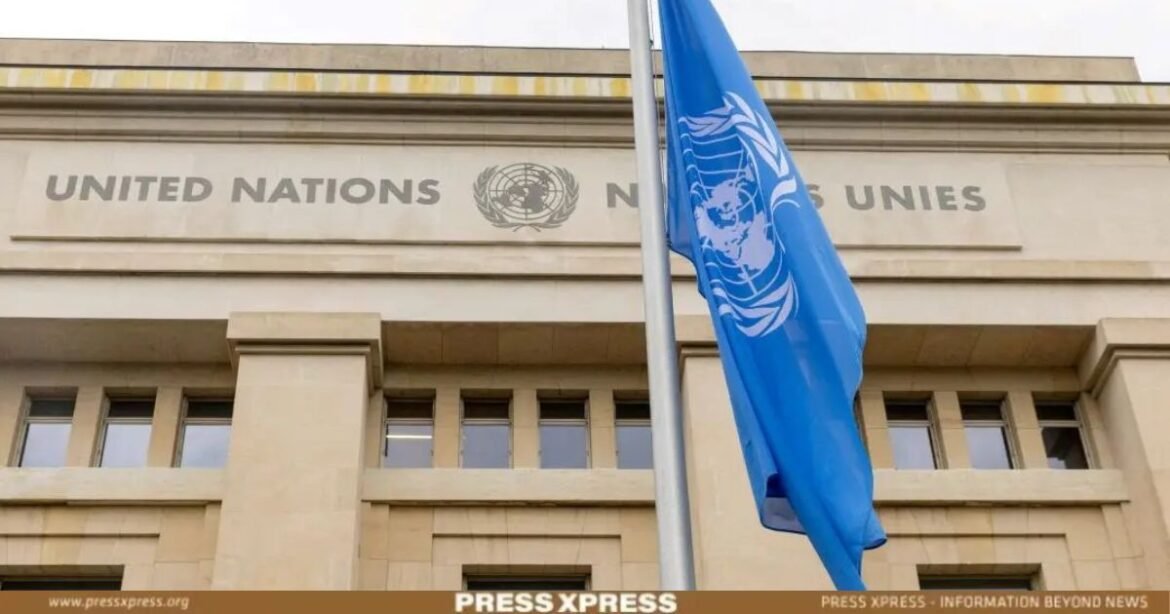In an announcement on the United Nations International Day of Solidarity with the Palestinian People, the global body has called for an unequivocal shift towards a two-state solution in the longstanding Israel-Palestine conflict. Emphasizing the urgency of the situation, Tatiana Valovaya, Director-General of the U.N. office in Geneva, delivered a speech authored by U.N. Secretary General Antonio Guterres, urging the international community to take decisive action based on United Nations resolutions and international law. The timing, coinciding with the International Day of Solidarity with the Palestinian People, highlights the gravity of the situation and the global community’s commitment to finding a diplomatic resolution.
The Escalating Violence
The call for a two-state solution comes in the aftermath of a tragic escalation of violence on October 7, where Hamas gunmen’s attacks resulted in the loss of 1,200 lives and the taking of 240 hostages. In response, Israel launched a forceful counteroffensive, including both bombardment and ground operations in Hamas-ruled Gaza, leading to a devastating toll with over 15,000 casualties, according to Palestinian health authorities.

The war has left hundreds of thousands displaced, hospitals have collapsed from lack of material and fuel and caused widespread infrastructure damage and food shortages across Gaza. The humanitarian crisis has become so severe that premature babies on hospital incubators have died and water and food supplies has gone down by 90%.
The Vision of a Two-State Solution
The proposed two-state agreement seeks to establish a Palestinian state encompassing the West Bank and Gaza Strip alongside the state of Israel. However, a significant point of contention remains the demand for a demilitarized Palestinian state to ensure the security of Israel. This condition, laid out by Israel, underscores the delicate balance that negotiators must strike to address the concerns of both parties. The Israeli claim for demilitarization is also rendered unfeasible due to the fact that Israel itself maintains one of the largest and most well-equipped militaries in the world.
Jerusalem: The Heart of the Matter

A core aspect of the proposed solution is the shared capital of Jerusalem. The U.N. envisions Jerusalem serving as the capital for both Israel and Palestine, fostering an environment where two sovereign nations coexist in peace and security. However, the longstanding dispute over Jerusalem’s status persists, with Palestinians aspiring for East Jerusalem, encompassing sacred sites for Muslims, Jews, and Christians, to be the capital of their future state. In contrast, Israel asserts its claim to Jerusalem as its “indivisible and eternal” capital.
Ibrahim Khraishi, the Palestinian ambassador to the U.N. in Geneva, views the ongoing conflict as a wake-up call for the international community to rally behind the two-state solution. Acknowledging the challenges posed by Israeli settlements and territorial reductions, Khraishi remains optimistic, stating that the two-state solution is still possible with collective will. He emphasizes the urgency of the moment, suggesting that the opportunity for such a resolution may slip away if not seized promptly.
Challenges and Opportunities
The path to a two-state solution faces formidable challenges, notably the expansion of Israeli settlements and the shrinking territorial space available for a Palestinian state. The question of demilitarization, crucial for Israel’s security concerns, adds another layer of complexity to the negotiations. However, despite these challenges, proponents argue that the two-state solution remains viable, offering a way forward for both nations to coexist peacefully.
International Support and Consequences
The call by the United Nations for an “irreversible” move towards a two-state solution reflects a broader international sentiment in favor of resolving the Israel-Palestine conflict through diplomatic means. The consequences of a failure to act decisively could be severe, not only for the directly involved parties but for regional and global stability. The potential for continued violence, humanitarian crises, and geopolitical ramifications underscores the urgency of pursuing a diplomatic resolution.
As the international community grapples with the complexities of the Israel-Palestine conflict, the United Nations’ call for an “irreversible” move towards a two-state solution serves as a crucial beacon of hope. Balancing the perplexity of diplomatic intricacies with the burstiness of urgent action, the proposed solution envisions a future where Israel and Palestine coexist peacefully with shared governance of Jerusalem. The window of opportunity is open, urging global leaders to act decisively in pursuit of a resolution that transcends the historical grievances and brings about lasting stability to the region. In the face of this critical juncture, the international community must recognize that war is not a solution and that diplomatic efforts must prevail for the collective benefit of both nations and the global community at large.


